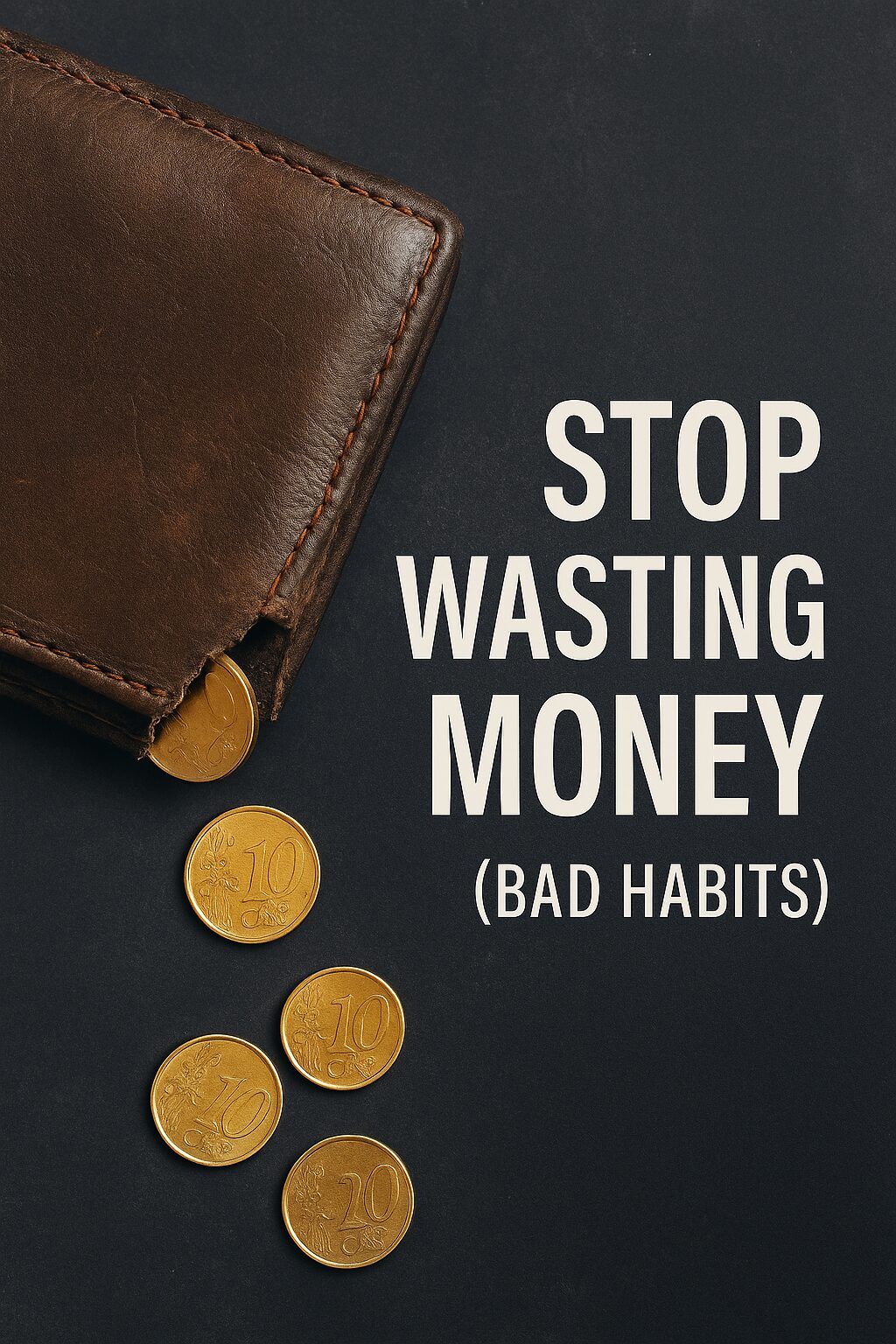Most people have no idea how much money they lose every month due to small, repetitive habits.
These habits don’t feel dangerous or expensive — in fact, most seem harmless.
But when they add up, they can quietly drain hundreds or even thousands of dollars a year.
The good news? Once you notice them, you can change them.
Let’s break down the most common habits that waste your money, and what to do instead.
1. Daily Coffee or Takeout
Buying coffee or takeout meals every day might seem like a reward for a busy life.
But spending $5 a day quickly turns into $150 a month — or over $1,800 a year.
And that’s only one small habit.
If you grab a quick breakfast, afternoon coffee, or lunch outside five days a week,
you’re spending the equivalent of a round-trip flight abroad every year — without even noticing.
Solution:
Set a goal to make your own coffee or meals at home at least 3 days a week.
Use that money for something meaningful instead — like investing, paying off debt, or saving for a trip.
2. Subscriptions You Don’t Use
Monthly subscriptions are easy to forget because they’re automated.
Streaming services, fitness apps, newsletters, software tools — they quietly charge your card, even if you’re not using them.
In many countries, the average person has 5–7 active subscriptions,
but uses fewer than 3 regularly.
Solution:
Do a subscription audit every 2–3 months.
Cancel anything you haven’t used in 30 days.
You’ll be surprised how quickly your budget breathes again.
3. Late Fees and Missed Payments
Missing bill payments comes with a painful price —
late fees, penalties, credit score damage, and stress.
Forgetting a due date can cost you $25–$50 per bill.
Over a year, that’s several hundred dollars wasted just because of poor timing.
Solution:
Use auto-pay or calendar alerts for every recurring bill.
Set reminders three days before the due date.
It’s a one-time setup that protects your finances long term.
4. Impulse Online Shopping
Online stores are designed to make you buy fast.
Flash sales, “Only 3 left!” alerts, free shipping countdowns —
these tricks push you to buy things you didn’t plan to.
Many of us buy something online out of boredom, stress, or just because it’s too easy.
Solution:
Use the 24-hour rule.
Add items to your cart, but don’t check out.
Come back the next day — in most cases, you won’t even want it anymore.
5. Brand Loyalty Without Comparison
Being loyal to a brand can feel comforting, but it’s not always the smartest financial move.
You might be overpaying just because you’re used to it.
Example: A $20 bottle of shampoo may be nearly identical in ingredients to a $7 version.
You’re not paying for quality — you’re paying for branding.
Solution:
Before you buy, do a quick price comparison.
Use Google Shopping, browser extensions, or comparison apps.
Stay loyal to your wallet, not just a logo.
6. Ignoring Cashback and Rewards
You could be losing free money.
If you’re not using cashback programs, loyalty points, or reward cards,
you’re missing out on 1–5% returns on everyday spending.
Over time, that adds up to hundreds of dollars per year — money that could go toward bills or savings.
Solution:
Use cashback apps (like Rakuten or Honey),
and make sure your debit/credit card offers rewards.
Even small percentages add up with regular use.
7. Not Tracking Your Spending
The biggest financial trap is not knowing where your money is going.
Without awareness, you can’t fix anything.
Many people think they’re “okay” with money —
but once they track their actual spending, they’re shocked by how much goes to random or forgotten expenses.
Solution:
Use a simple budget app like Mint, YNAB, or a Google Sheet.
Log your spending once a week — even just for 5 minutes.
Awareness is the first and most powerful step to change.
Final Thoughts
You don’t need to make more money to build wealth — you need to stop the leaks.
Small habits become big problems over time.
But that also means small changes bring big results.
Start with just two habits from this list.
Fix them this week.
Then add another next month.
This is how smart people get ahead — not by doing everything perfectly,
but by doing a few things better than before.
Your wallet will thank you.
